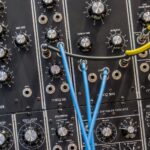Support our educational content for free when you purchase through links on our site. Learn more
Did Kraftwerk Invent Hip Hop? [2024] 🎵
Have you ever wondered about the origins of hip hop? It’s a genre that has taken the world by storm, influencing countless artists and shaping popular culture. While many credit African-American pioneers in the Bronx for the birth of hip hop, there is a fascinating connection to a group of German musicians that might surprise you. In this article, we’ll explore the question: Did Kraftwerk invent hip hop? Get ready for a deep dive into the history of hip hop and the groundbreaking influence of Kraftwerk!
Quick Answer
No, Kraftwerk did not invent hip hop. However, their innovative sound and electronic music techniques played a significant role in shaping the genre. Kraftwerk’s music, particularly their album “Trans-Europe Express,” had a profound impact on early hip hop artists, who sampled and reimagined their tracks. While they didn’t create hip hop, Kraftwerk’s influence cannot be overstated.
👉 CHECK PRICE on: Kraftwerk Albums | Kraftwerk Merchandise | Kraftwerk Official Website
Quick Tips and Facts
- Kraftwerk is a German electronic music band formed in 1970.
- Their album “Trans-Europe Express” (1977) had a significant impact on early hip hop.
- Hip hop artists, such as Afrika Bambaataa, sampled and reimagined Kraftwerk’s tracks.
- Kraftwerk’s influence extends beyond hip hop to various music genres.
- They are considered pioneers of electronic music and have inspired countless artists.
Background: The Rise of Kraftwerk and Hip Hop

To understand the connection between Kraftwerk and hip hop, we need to delve into the history of both. Kraftwerk, formed in Düsseldorf, Germany, in 1970, was at the forefront of the electronic music movement. Their unique blend of synthesizers, drum machines, and innovative production techniques set them apart from other bands of the time.
Hip hop, on the other hand, emerged in the late 1970s in the Bronx, New York. It was a cultural movement that encompassed music, dance, art, and fashion. African-American pioneers, such as DJ Kool Herc, Grandmaster Flash, and Afrika Bambaataa, played a crucial role in shaping the genre.
1. The Influence of “Trans-Europe Express” on Hip Hop
One of Kraftwerk’s most influential albums, “Trans-Europe Express” (1977), had a profound impact on the early hip hop scene. The album’s innovative rhythms, catchy melodies, and futuristic soundscapes resonated with artists searching for new sonic possibilities.
Afrika Bambaataa, a New York DJ and one of the founding fathers of hip hop, recognized the potential of Kraftwerk’s music. He sampled and reimagined their tracks, most notably in his seminal song “Planet Rock” (1982) with his group Soulsonic Force. “Planet Rock” combined elements of Kraftwerk’s “Trans-Europe Express” and “Numbers” to create a groundbreaking fusion of hip hop and electronic music.
Bambaataa’s use of Kraftwerk’s music introduced their sound to a wider audience, including the hip hop community. The influence of “Trans-Europe Express” on early hip hop cannot be overstated, as it laid the foundation for the genre’s evolution.
2. Kraftwerk’s Innovative Sound Lab: Kling Klang Studio
To fully understand Kraftwerk’s impact on hip hop, we must explore their creative process. The band’s sound lab, Kling Klang Studio, became a hub for experimentation and innovation. It was here that they developed their signature electronic sound, using synthesizers, drum machines, and other cutting-edge equipment.
Kraftwerk’s meticulous attention to detail and their relentless pursuit of sonic perfection set them apart from their contemporaries. Their commitment to pushing the boundaries of electronic music resonated with hip hop artists, who were also pushing the limits of what was possible with their turntables and samplers.
3. Kraftwerk’s Influence on Other Music Genres
While Kraftwerk’s impact on hip hop is undeniable, their influence extends far beyond the genre. Their pioneering use of synthesizers and electronic music techniques laid the groundwork for countless artists in various genres.
In the realm of electronic pop music, Kraftwerk’s influence can be heard in the work of bands like Depeche Mode, New Order, and Pet Shop Boys. Their futuristic soundscapes and robotic vocals became hallmarks of the synth pop movement that dominated the 1980s.
Even in the world of rock music, bands like Coldplay have cited Kraftwerk as a major influence. The band’s use of electronic elements and their emphasis on melody and atmosphere can be traced back to Kraftwerk’s groundbreaking approach.
4. Kraftwerk’s Enduring Legacy
Kraftwerk’s impact on music cannot be overstated. Their innovative sound and pioneering use of electronic instruments have left an indelible mark on the industry. In recognition of their contributions, Kraftwerk received a Grammy Lifetime Achievement Award in 2014.
Despite the departure of founding member Florian Schneider in 2009, Ralf Hütter continues to carry the torch for Kraftwerk. Their music continues to inspire and influence new generations of artists, ensuring that their legacy lives on.
FAQ

Did Kraftwerk influence hip hop?
Yes, Kraftwerk had a significant influence on hip hop. Their album “Trans-Europe Express” and its innovative sound played a crucial role in shaping the early hip hop genre. Artists like Afrika Bambaataa sampled and reimagined Kraftwerk’s tracks, introducing their music to a wider audience.
What did Kraftwerk invent?
While Kraftwerk didn’t invent hip hop, they are considered pioneers of electronic music. They revolutionized the use of synthesizers, drum machines, and other electronic instruments. Their innovative sound and production techniques set the stage for the electronic music movement.
Who invented hip hop songs?
Hip hop songs were created by a collective of African-American pioneers in the Bronx, New York, during the late 1970s. DJs like Kool Herc, Grandmaster Flash, and Afrika Bambaataa played a crucial role in the development of hip hop music.
Why is Kraftwerk so influential?
Kraftwerk’s influence stems from their groundbreaking sound and innovative approach to music production. Their use of synthesizers, drum machines, and electronic instruments set them apart from other bands of the time. Their music resonated with artists across genres, shaping the landscape of popular music.
Conclusion

While Kraftwerk did not invent hip hop, their influence on the genre cannot be overstated. Their album “Trans-Europe Express” and their innovative sound played a pivotal role in shaping the early hip hop scene. Kraftwerk’s impact extends beyond hip hop, influencing artists in various genres and leaving an indelible mark on the music industry.
So, did Kraftwerk invent hip hop? No, but they certainly helped shape its sound and direction. Their pioneering use of electronic instruments and their commitment to pushing the boundaries of music continue to inspire and influence artists to this day.
If you’re interested in exploring more about Kraftwerk and their impact on music, check out these recommended links:
- Synth Pop Artists
- Iconic Synth Pop Songs
- Synth Pop Culture Impact
- Synth Pop Concerts and Tours
- 80s Synth Pop
- Did Kraftwerk Invent Techno?
For further reading and verification, here are some reference links:
Now that you know the fascinating connection between Kraftwerk and hip hop, it’s time to dive into their music and explore the groundbreaking sounds that continue to inspire generations of artists. Enjoy the journey! 🎶


